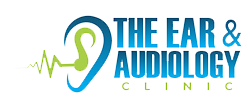What is comprehensive hearing assessment?
A comprehensive assessment, in the context of audiology and hearing health, refers to a thorough and detailed evaluation of an individual’s auditory system and related functions. This type of assessment is designed to provide a comprehensive understanding of the person’s hearing abilities, potential hearing issues, and overall auditory health. The specific components of a comprehensive assessment can vary, but it often includes the following:
-
Case History and Lifestyle & Needs Assessment:
A detailed discussion with the individual about their medical history, lifestyle, and any specific challenges or concerns related to hearing health. The Audiologist will identify the needs and desired outcomes for the patient in order to present realistic and appropriate treatment options.
-
Otoscopy:
An otoscope (device used to examine the outer ear and ear drum) is the first step of the hearing test. Examination of the ear canal checks for potential infections, abnormalities with the eardrum, or whether a wax build up is present. We do have the option for video otoscopy as well.
-
Pure-Tone Audiometry:
A test to measure hearing sensitivity across different frequencies. This is the step that people most commonly expect when they come in for a hearing test. We play a series of beeps/tones and ask you to respond when you hear one. This way we can determine your hearing thresholds for each ear individually, across the range of frequencies/pitches that are important for speech understanding.
We use the results of this test to establish the severity and type of hearing loss. A hearing loss can be the result of damage to the inner ear and/or auditory nerve (sensorineural hearing loss), problems with the middle ear (conductive hearing loss), or both (mixed hearing loss). -
Speech Audiometry:
This assesses an individual's ability to hear and understand spoken words. This part of the assessment is divided into two main parts.
1. During the first part, you will be asked to repeat words as we vary the loudness. The purpose is to establish the softest level at which you are consistently able to repeat the words back correctly.
2. During the second part, we measure your accuracy when repeating words at a comfortable listening level. We also complete tests to establish your most comfortable listening level for speech (MCL), as well as your uncomfortable listening level (UCL; the maximum level you can listen to sounds before they become uncomfortably loud).
-
Immittance/auditory reflexes:
A test that measures the movement of the eardrum in response to changes in air pressure. It helps identify issues with the middle ear, such as fluid or blockages. We may also play loud sounds in your ear to assess acoustic reflexes.
-
Tinnitus Evaluation:
An assessment to identify the presence and characteristics of tinnitus (ringing or buzzing in the ears) and develop appropriate management strategies.
-
Counseling and Rehabilitation Services:
Audiologists may provide counseling and rehabilitation services for individuals with hearing loss, including guidance on communication strategies and the use of hearing aids.
-
Counselling on Hearing Loss
We recognize the importance of education when it comes to hearing loss. We take the time to explain each individual test protocol and their results in detail.
Later we counsel our patients on the type of hearing loss that is present (e.g. sensorineural, conductive, or mixed) and are happy to address any questions you might have. -
Hearing Loss Prevention
Hearing loss prevention is important. Our audiologist can help you to determine which situations require hearing protection and can make recommendations according to your needs.
Concerned that your hearing is at risk?
Excessive noise exposure can damage your hearing. If you think that you are exposed to too much noise through your occupation or recreational activities, we can help by counseling you on noise reduction techniques and by recommending custom earplugs (if applicable).
At The Ear & Audiology Clinic, our goal of a comprehensive hearing assessment is to gather detailed information about our patient’s hearing health, identify any potential issues, and develop tailored recommendations or interventions.This approach allows our Audiologist to address specific needs and improve the overall quality of life for our patients with hearing-related concerns.
As one of the top patient centric hearing clinics, we take great pride in providing each patient with the attentiveness and care they deserve. Whether you are currently dealing with hearing loss or believe prevention is the best course of action, we have the services you need to overcome the difficulties.
Lastly, we highly encourage you to bring a family member with you to the assessment. Family members bring an added perspective to how you are hearing, and many times people have learned more about their loss during the consultation !
Pediatric Hearing Evaluation & Management
Pediatric hearing evaluation and management are crucial for early detection and intervention in children with hearing issues. Screening typically begins shortly after birth, with newborn hearing screenings conducted to identify any potential hearing loss. Early detection is vital, as it allows for prompt intervention and better outcomes in language and cognitive development.
Diagnostic hearing evaluations are conducted if a child fails the initial screening or if there are concerns about their hearing. These evaluations involve more in-depth assessments, such as behavioral observation audiometry, tympanometry, and otoacoustic emissions testing, to determine the type and severity of the hearing loss.
Once a hearing loss is identified, appropriate management strategies are implemented. For mild to moderate hearing loss, amplification devices like hearing aids may be prescribed. Hearing aids help enhance sound perception, allowing children to better participate in social and educational activities.
For more severe or profound hearing loss, cochlear implants may be considered. Cochlear implants are surgically implanted devices that directly stimulate the auditory nerve, providing a sense of sound. Early implantation is crucial for optimal language development.
Speech therapy and auditory rehabilitation play essential roles in the overall management of pediatric hearing loss. These interventions help children develop effective communication skills, including speech and language abilities. Multidisciplinary collaboration involving audiologists, speech-language pathologists, educators, and parents is essential to ensure comprehensive and continuous support for the child’s auditory and communication needs.
Regular follow-up evaluations are conducted to monitor the child’s hearing status and make adjustments to intervention strategies as needed. Parental involvement is crucial for the success of these interventions, as they play a central role in supporting their child’s auditory development at home and in various social environments. Overall, early detection, appropriate intervention, and ongoing support contribute to the best possible outcomes for children with hearing loss.
At The Ear & Audiology clinic locations, currently we do pediatric hearing assessment for kids over 5 years.

Employment Hearing Testing
(OACP/RCMP Hearing Test)
Employment screening often includes pre-employment testing to assess a candidate’s suitability for a job. In certain industries or roles where auditory capabilities are crucial, employers may incorporate pre-employment hearing tests as part of the assessment process. These tests evaluate an individual’s ability to perceive and interpret sounds, ensuring that they can effectively perform tasks that rely on auditory skills.
A pre-employment hearing test typically involves a series of assessments conducted by audiologists. These tests may include pure-tone audiometry, speech audiometry, and other specialized evaluations to measure the candidate’s hearing acuity and ability to understand spoken language. The results are compiled into a comprehensive report that outlines the individual’s hearing status.
The information from the pre-employment hearing test helps employers make informed decisions about whether an applicant’s hearing abilities align with the job requirements. It ensures that candidates are placed in roles where their auditory skills are adequate for effective job performance. Additionally, this screening process promotes workplace safety and inclusivity by addressing any potential challenges related to hearing impairments early in the hiring process.
At The Ear & Audiology clinic locations, our experienced Audiologist can conduct pre-hire and employment hearing tests, and complete the documents required. We also provide hearing assessment in accordance with the standards of OACP certificate testing for police recruitment, including OPP, TPS, YRP and RCMP. To book your appointment give us a call.

Disclaimer
If you have occluded or impacted ear wax, we won’t be able to perform comprehensive hearing assessment. Once you complete the cerumen management or ear wax removal successfully, we will have to re-book you for the same.
There is a service fee for our Comprehensive hearing assessment. If you see any hearing services are offered for free like complimentary hearing test elsewhere, be cautious as most of the time it is a marketing strategy. Kindly make sure to confirm they will provide you the test results (Audiogram report) at no cost as well. However, to make hearing care accessible to all, you will find that our fees are very reasonable, compared to other hearing clinics.
Our Client’s Travel from across the GTA and The Durham Region including the residents in the cities of Toronto, Scarborough, Pickering, Ajax, Whitby, Oshawa, Bowmanville, Port Perry, Port Hope, Uxbridge, and Scugog To Receive Our Comprehensive Hearing Assessment From Our Registered Audiologist.
Frequently Asked Questions About Comprehensive Hearing Assessment
A doctor’s referral is not mandatory with us, but we prefer to have a referral so that we can send the results and recommendations to your family physician to keep it on your file. It will help us to keep your doctor in the loop in terms of your hearing needs and management options. This applies for both adults and children.
OHIP no longer covers hearing testing. Hearing tests were delisted from OHIP in August of 2001. There are some exceptions to this rule, however. For instance, if you are being seen by an otolaryngologist or ear nose and throat specialist (ENT) and a hearing test is being performed during that appointment, the specialist can bill OHIP for the testing.
We have a service fee for our Comprehensive hearing assessment.
If you have personal health insurance coverage (purchased personally or through your work), you may be eligible to seek reimbursement, depending on your policy and level of coverage.
Kindly call your insurance providers and confirm, if these services are covered before you come for your appointment to avoid any disappointments.
We do not direct bill your insurance, we will provide you paid Invoices, and you can submit it for reimbursements.
Comprehensive hearing assessment will be performed by a registered Audiologist.
Some of the third parties like WSIB, DVA, IFHP, NIHB, ODSP covers for these services & we could help you with the same.
